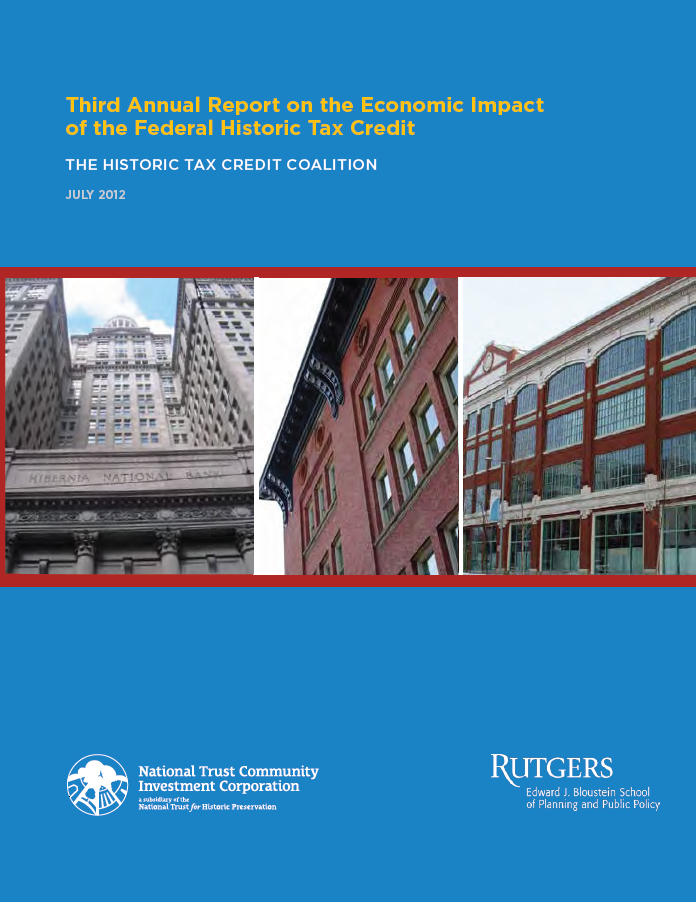This study examines the historical and current application of the federal historic tax credit (HTC) in the United States; presents quantitative and qualitative information regarding the economic and other benefits of the HTC (e.g., providing affordable housing and spurring downtown revitalization); and explores ways in which the current HTC —a strong program in its own right—can be applied more flexibly in the future, so as to yield greater production and ensuing benefits.
The research for this report was conducted by the Rutgers University Center for Urban Policy Research, under the guidance of Dr. David Listokin, Dr. Michael L. Lahr, and Charles Heydt, and with the assistance of John Leith-Tetrault and Anna Klosterman of the National Trust Community Investment Corporation (NTCIC), the HTC subsidiary of the National Trust for Historic Preservation. This study was commissioned by the Historic Tax Credit Coalition (HTCC), a public policy advocacy organization whose members represent HTC industry participants, including investors, syndicators, developers, preservation consultants, tax attorneys, and accountants.
